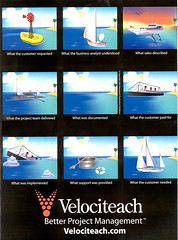Bribes end up with sour just desserts? Snap!Japan - a long-term resident's perspective
Since the Lockheed scandal brought Kakuei Tanaka down in the late 1970's, Japan has seen many and varied incidents, their occurrence only escalating in recent years. Even the Tanaka protege Ichiro Ozawa, who has been stressing a (rather two-faced) populist agenda of late, is now tainted by a bribe scandal via a top aide accused of taking corporate donations. Ozawa san, so much for that "for the people" agenda eh? Who's going to replace Aso?! I like talking to just about anyone, and it's frequently the case that I find myself talking to a random taxi driver about something or other happening in Japan. The other day, during a conversation variously about Ozawa, bribes, the US Sarbanes Oxley legislation and "settai" (client entertainment) in Japan, my "over 60" year old driver told me he worked at Mizkan, the vinegar maker, for 40 years. I assume was his whole career, and he said he was in sales, in charge of large corporate accounts.
blog:Cogley - Large Project Inequities
The thought that "no correctly-spec'ed project gets approved" leads me to lots of questions, and no real answers this morning. I was thinking about the massive projects that the world has seen, like the Pyramids, great Dams, Bridges, Skyscrapers and Railways, or well-designed and -architected cities in general, and wondering: Are these things we marvel at, built on great inequities? Inequities that people of certain demographics cannot even imagine (thinking about myself as a white, male, middle-class American). It's not comfortable to think about, but would such marvels even exist if there were not the exploited and the exploiters? Can this said to have been even necessary for technical progress?
Posted from Diigo. The rest of my favorite links are here.

